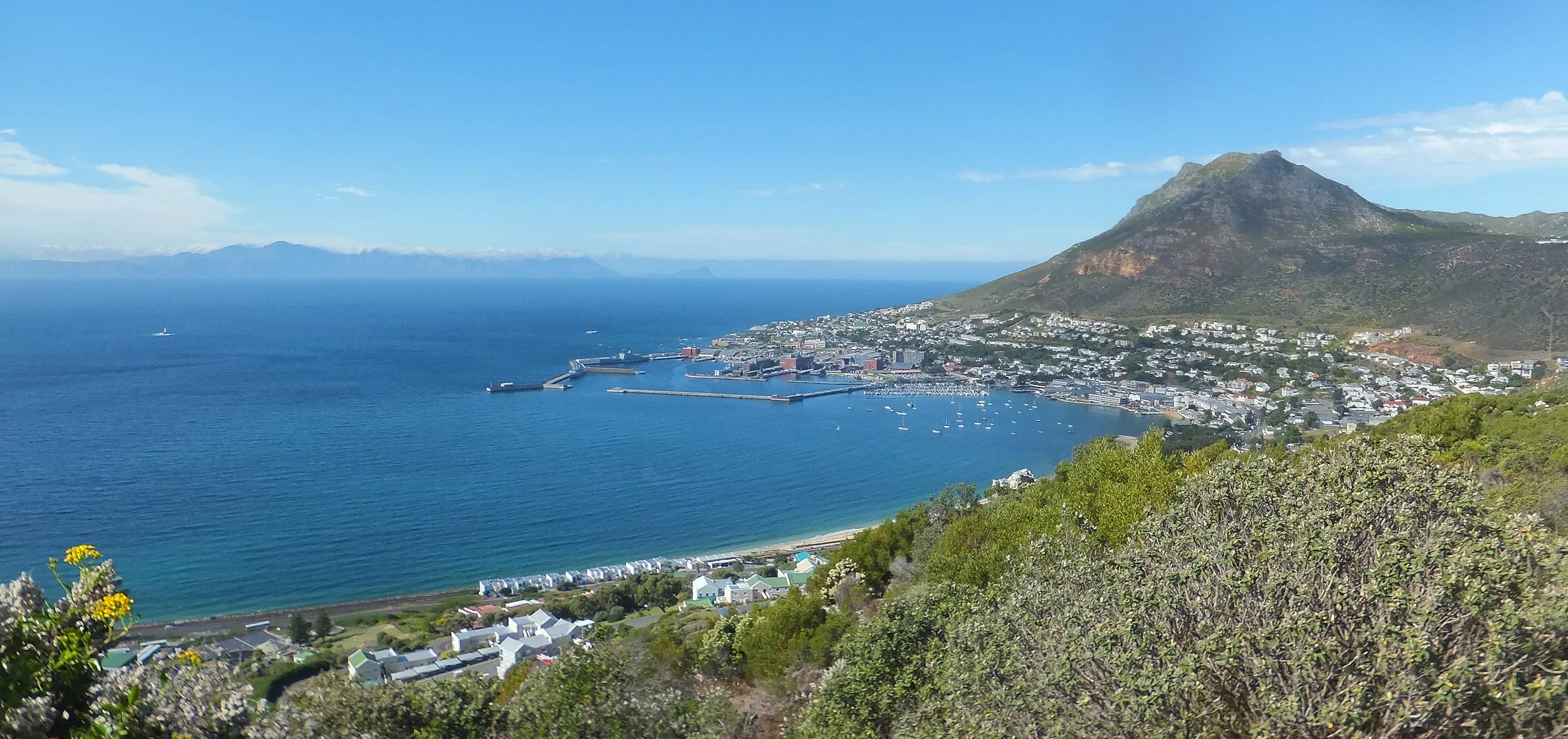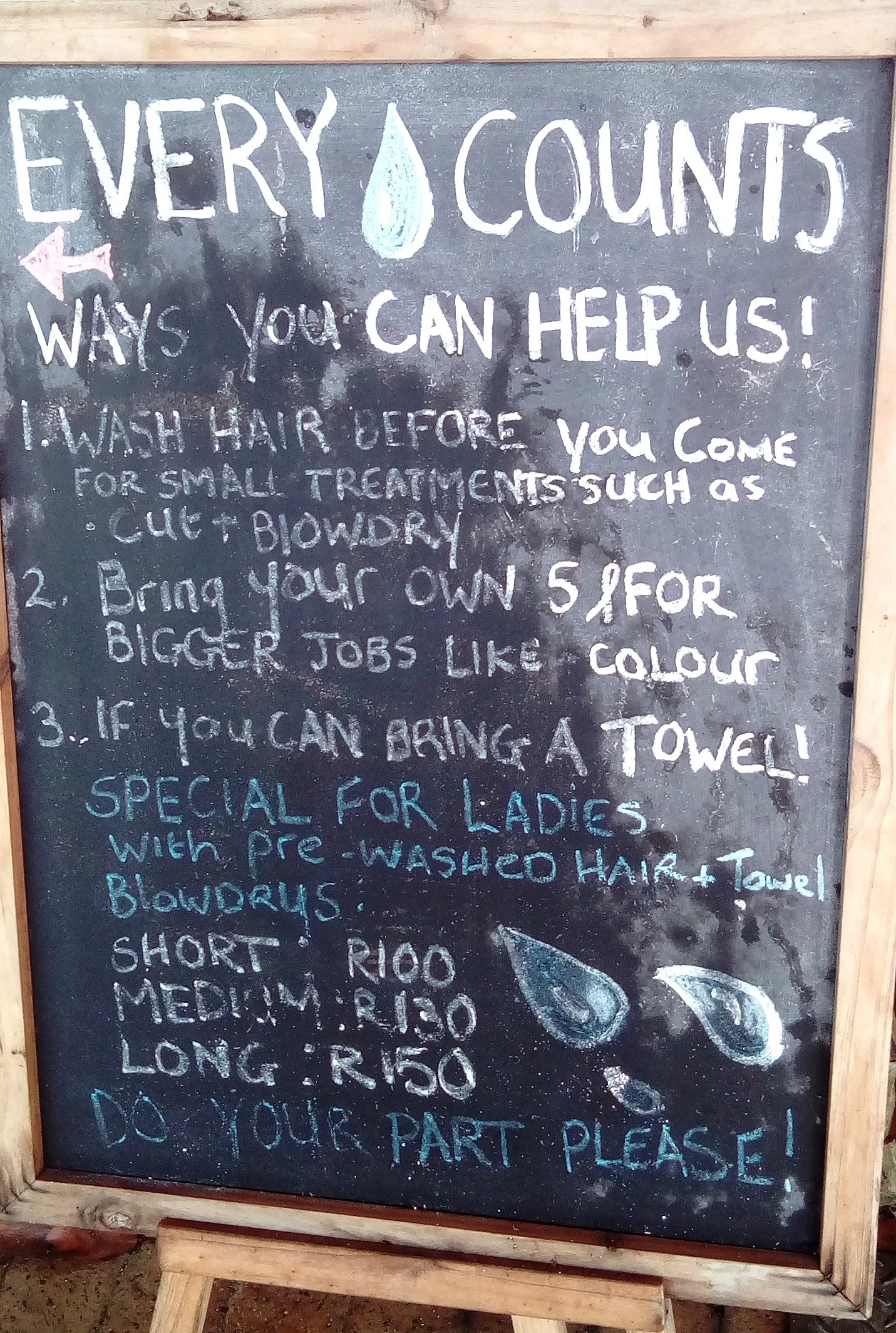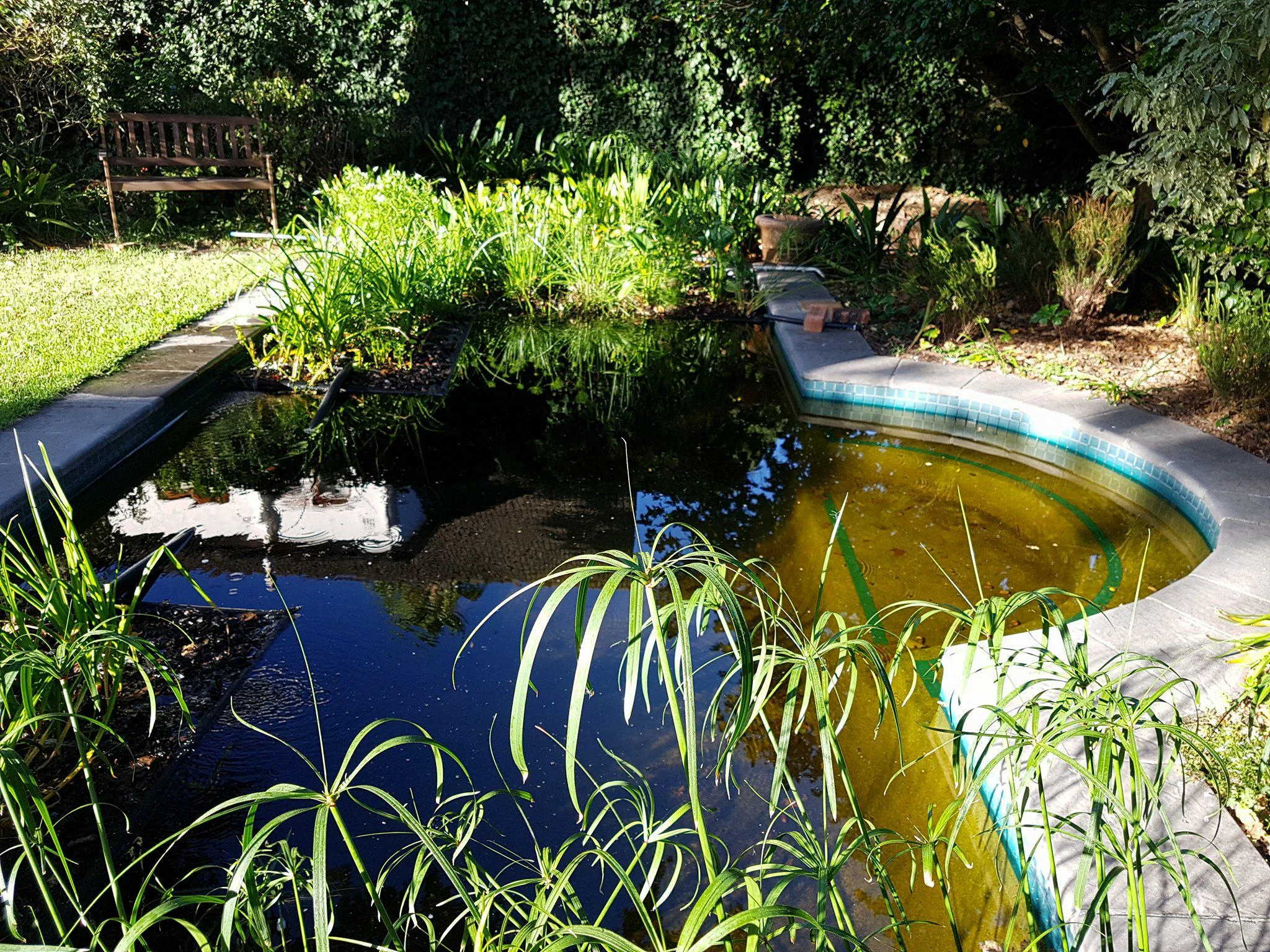Back in sinewy Cape Town with its relentlessly blue skies, after another flight over great swathes of white sand where once were huge dams. It was glorious and a bit strange to visit somewhere where everything was soaked through and through, where 42 mm of rain fell in one night, where I had to dry my laundry in front of the fireplace because this wet stuff kept plummeting down from the skies.
River in spate, only steps from the parental front gate. It felt like a pilgrimage site, a place to stop in awe.
I've been thinking about the best water-wise ways to tackle the two biggest drains on water supply by the middle classes: gardens and pools. I was also fascinated to read that one of the most aggressively water-savvy and saving cities in the world is (wait for it): Las Vegas. Here, citizens were PAID to join the "war on grass" by digging up their lawns and replacing them with desert plants. Patrolling "water police" fine owners for letting water run off their properties and into drains (CoCT, TAKE NOTE.)
But what do we replace lawns with? Here I am no expert. But my folks definitely fall into that category, so I asked them.
I was mildly horrified by their first answer: Astroturf. Which I associate with miniature golf. They insisted: for those for whom gardens are a place for children to play, this is a great solution. I was a bit hesitant until I considered that bits of old, quietly disintegrating carpet are used by all the savvy recycling-conscious gardeners I know to suppress weeds and grass when preparing new beds. It lets water soak through, keeps the soil warm and damp, smothers the plants you don't want, and is also great for shaping gardens and creating new paths. My mama reminded me that in the UK, one of the biggest markets for carpets is for outdoor use: carpets made to resemble wood bark are especially popular.
The first rule for replacing lawns, however, is indisputable: whatever you choose, it MUST be permeable. We have to get as much water soaking back into the earth as possible; paving over the soil (aka water sponge) with stone, concrete, tarmac, bricks, decking and so on, sends billions of litres of run-off water charging down storm drains and out to sea.
The obvious choice to replace grass is indigenous groundcovers, but choosing the right plants is a long-term process and a specialist business I will leave to experts like Rupert Koopman and Erina Botha.
My mama is starting a garden afresh. So much of green and softness.
When I moved to a new home with waaaaay too much (mostly dead) lawn, I had my own experiments to conduct. Gravel is expensive and no one likes walking on it, but it's permeable. It also crunches in a way that I consider a good security measure. One swathe of grass became the new veg bed. This gobbles up all the compost, mulch and blackwater I can throw at it, and has somehow miraculously survived the drought.
I've also experimented with peach and apricot pips (very pretty, but ow ow to walk on with bare feet -- and the cats say the same); discarded thatch (very slippery for humans to walk on, but attractive, and the cats approve); bark chips and bark mulch. The latter look fine, they're good for the soil, pets and kids play on/in the stuff happily, but do not attempt to spread during southeaster season. They work best in smaller gardens, or those with lots of shade/shelter cast by trees and shrubs, where they have a chance to "knit" into the top layer of the soil. But I really am a beginner in this respect, and would welcome your ideas.
I know nothing about pools, but I'm seeing more and more people who've rejigged their chlorinated pools into ecopools, and are thrilled with the results. Here, for inspiration, are two photos taken by author Bridget Pitt of her family's converted pool.
I feel cooler just looking at this.
Frogs and spiders: often associated with witches in fairytales. You know what witches DON'T have a problem with? Flies and mozzies.











